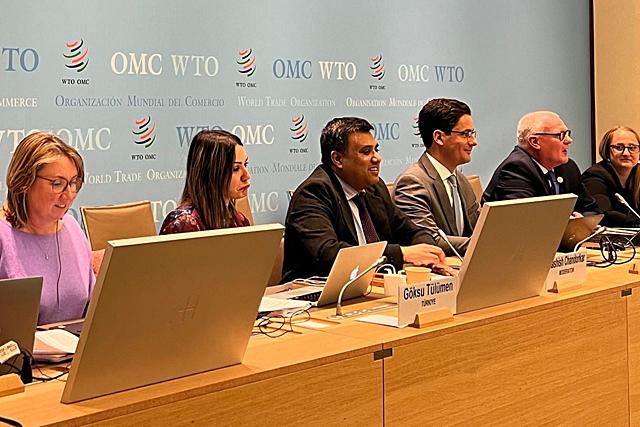| International standards help to overcome technical barriers to trade |
| Date: 2023-03-08 Source:IEC |
Named "Thematic session on Regulatory Cooperation between Members on Climate Change", the event, which took place in Geneva on 7 March, gathered several high-level speakers, including the Chair of the IEC System for Certification to Standards Relating to Equipment for USE in Renewable Energy Applications (IECRE), Alistair Mackinnon. One of the key take aways of the session was that, while everyone agreed that the fight against climate change is an absolute priority, the proliferation of different national standards and benchmarks on environmental goods, as well as government regulations, can be technical barriers to trade, especially for emerging countries. Only International Standards can help to overcome these barriers. Louis Mercier, head of Multilateral Green Trade Policy at the UK's Department of Business and Trade, emphasized that environmental policies can have a mix of positive and negative effects on trade, including added cost, if not designed and implemented in reference to international standards. This is the case for environmental goods, like wind turbines, one of several case studies illustrating research carried out by the Department. "Trade policy makers, climate policy makers, regulators and standards making bodies need to work together to develop mutually beneficial solutions for more sustainable trade," he said. Alistair Mackinnon explained the role of IEC International Standards and Conformity Assessment, notably regarding wind turbines, highlighting the work of Technical Committee 88, which prepares standards for wind energy systems. "The sector has witnessed a sea change over the last 40 years. The renewable energy sector is now a multi-million dollar business and it has become global. A wind turbine can be designed in Denmark, manufactured in China, and deployed on the East or West Coast of America," he emphasized. He underlined the openness and the consensus-driven nature of IECRE. "No stakeholder among our members has more say than another. Everyone is welcomed, valued and respected," he stated. He encouraged countries from around the world to join IECRE as members. "Most of our members come from Europe and the North American continent. Our Asian colleagues also make important contributions, but we would like to see African and South American countries take part as well," he said. He recognized that cost, notably for travel, could be a barrier to participation for some countries and called out to the WTO to perhaps find some sort of solution to reduce these barriers. "We are not blessed with the gift of telepathy and can't guess countries' different requirements if they don't take part. I have an example. We have produced various standards for wind turbines over the years but it is only when the Japanese member mentioned that they did not account for typhoon conditions that we included that specific aspect in the standards," he concluded. (Source: IEC) |
|
Attachments:
|
|
